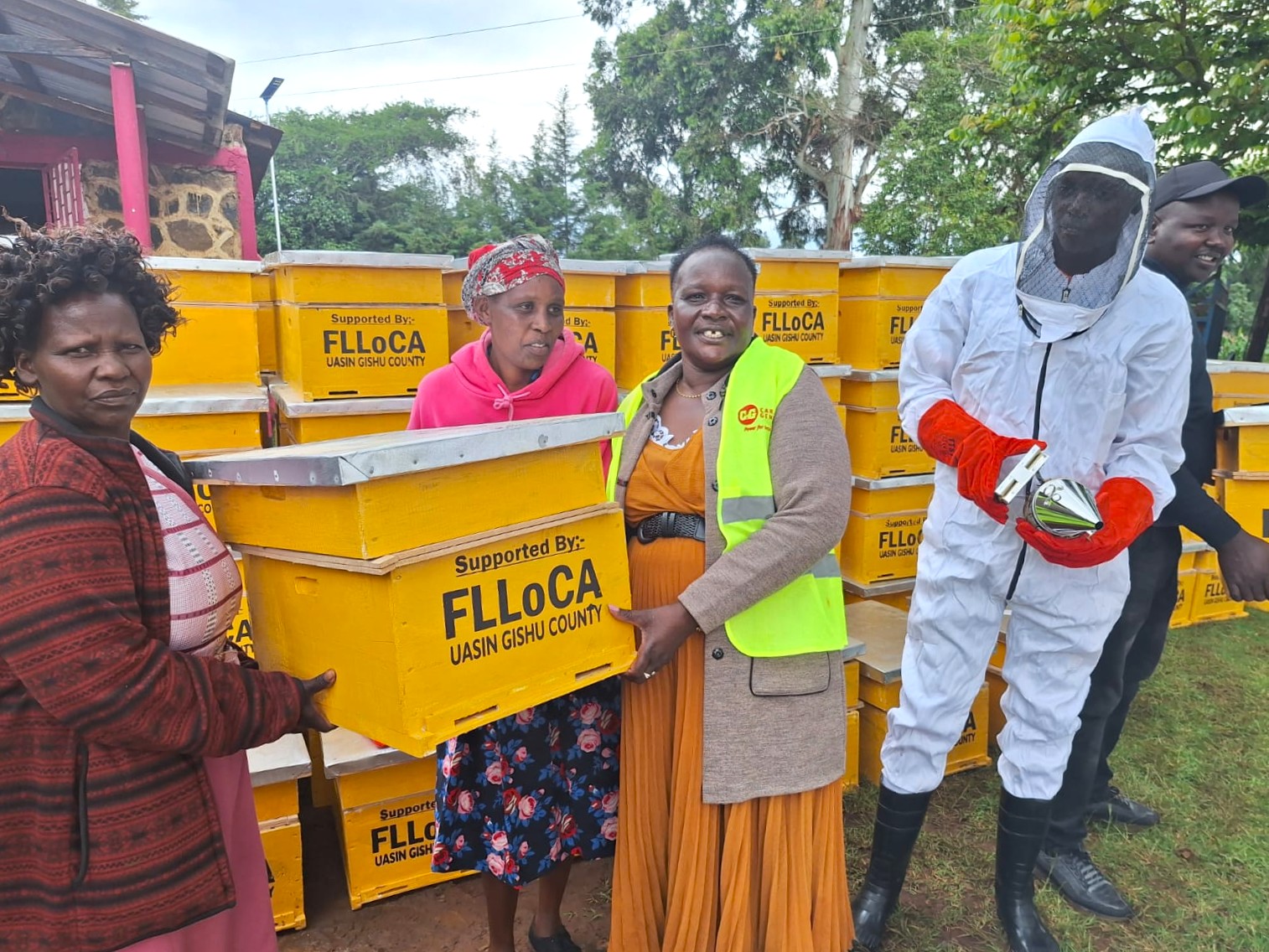

The buzz of bees is joining the green of coffee and avocado
in Uasin Gishu, where thousands of farmers are rewriting their agricultural
story and getting better returns from high-value crops.
Over 20,000 farmers in Uasin Gishu have embraced crop
diversification and modern farming.
Governor Jonathan Bii has already distributed more than one
million coffee seedlings across all subcounties, encouraging farmers to move
beyond maize and wheat, which for decades dominated the region but now offer
dwindling returns.
Farmers are now turning to high-value crops such as avocado,
macadamia and fresh produce for export.
“We are sensitising our farmers to fully utilise their land
with modern farming systems so they can earn more from high-value crops,” Bii said.
At the same time, the county is pushing beekeeping as an
alternative source of income.
More than 1,000 farmers have already embraced apiculture,
with the government distributing 170 modern beehives and 17 complete
honey-harvesting kits in Ainabkoi under the Financing Locally-Led Climate
Action Program (FLLoCA).
The move is designed to promote climate-smart agriculture
and sustainable livelihoods. Farmers also underwent intensive training from
livestock officers to ensure the venture becomes profitable.
According to Mercy Kemboi, the Climate Change Unit officer
in charge of Ainabkoi, beekeeping is an attractive option because it does not
require constant attention.
“Bee farming can be done alongside other agricultural
activities. Once set up, the bees largely take care of themselves while
providing honey, wax and other products that fetch good prices in the market,”
she said.
Her sentiments were echoed by Eng Christopher Mbevi of the
Climate Change Unit, who noted that the county is distributing beehives in
several subcounties and encouraging farmers to form cooperatives.
“This will allow large-scale production, proper packaging,
branding and sales to major supermarkets,” he said.
Among the beneficiaries is the Techgaa Women Group, whose
members expressed optimism about the future. Chairperson Rosa Ngetich said the
group is determined to go beyond local markets.
“We want to package and brand our honey professionally and
sell it not just in Uasin Gishu, but across the country and beyond,” she said.
For many farmers, the shift is more than just an economic
venture — it is a chance to reimagine their livelihoods in the face of climate
change.
“With honey in high demand both locally and internationally,
Ainabkoi farmers are buzzing with excitement. We are ready to turn sweet golden
drops into sustainable livelihoods,” Jane Rotich, one of the farmers said.
The initiative ties directly to FLLoCA’s mission of
empowering communities with innovative, locally-driven solutions that build
resilience while boosting household incomes.
Instant analysis
Uasin Gishu’s shift from traditional maize and wheat to high-value crops and beekeeping reflects a broader national trend of farmers seeking resilience against climate change and volatile markets. Governor Jonathan Bii’s push for diversification through coffee, avocado and macadamia is not only about boosting household incomes but also positioning the county for export opportunities. The beekeeping initiative adds a climate-smart, low-maintenance enterprise with strong domestic and international demand. However, success will hinge on sustained training, access to markets and value addition through cooperatives. If well-implemented, the programme could redefine the region’s agricultural identity.






![[PHOTOS] Security intensified as Gachagua's supporters flock JKIA](/_next/image?url=https%3A%2F%2Fcdn.radioafrica.digital%2Fimage%2F2025%2F08%2Febbe30ce-2f64-44c7-bd47-4fb9a7669b18.jpg&w=3840&q=100)





![[PHOTOS] Leaders await Gachagua's arrival at JKIA](/_next/image?url=https%3A%2F%2Fcdn.radioafrica.digital%2Fimage%2F2025%2F08%2F24dd41c3-06c2-4ed4-808c-c144ceb8f198.jpg&w=3840&q=100)
